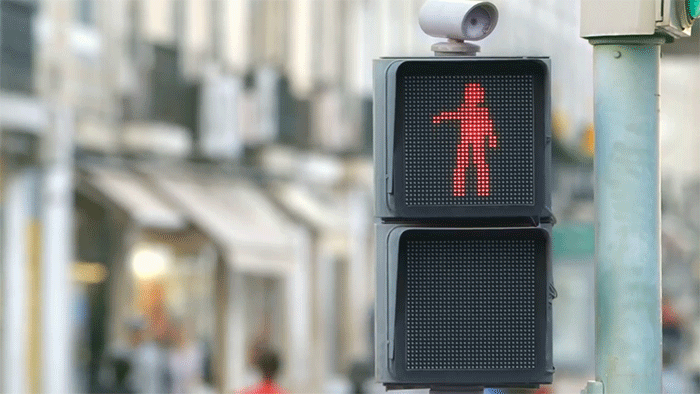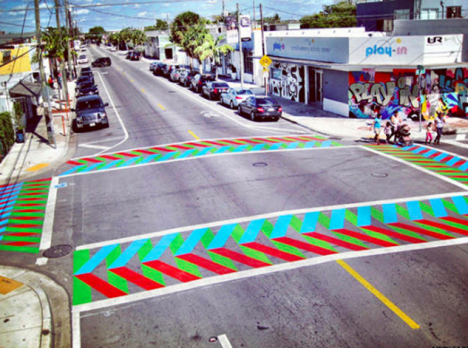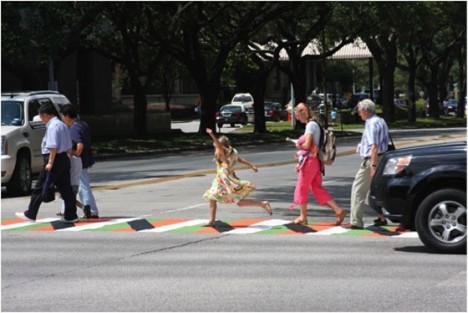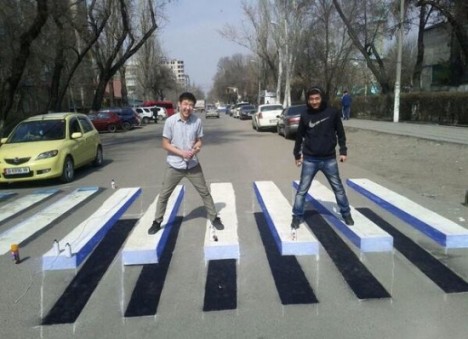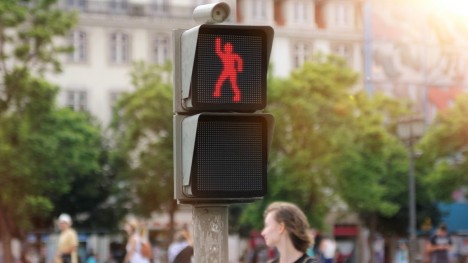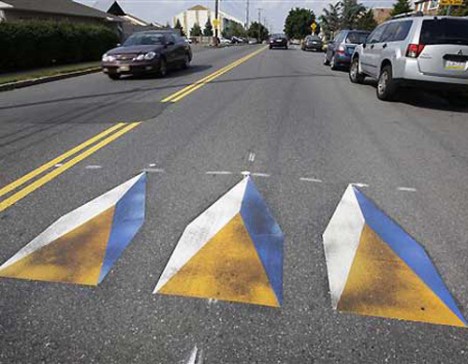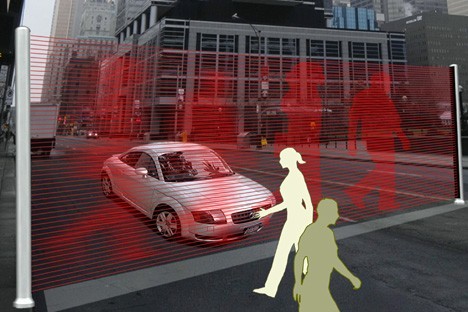Optical illusions that seem to produce real 3D speed bumps on a flat street may enhance safety by encouraging drivers to slow down, but such colorful crosswalk paintings could soon become extinct in the United States. Now that the Federal Highway Administration started cracking down on anything that distracts from the contrast of bright white crosswalk lines, citing concerns that drivers will get confused, attempts to make intersections more interesting could come to a screeching halt. Bright patterns on asphalt may fade, but other crosswalk interventions will live on, like interactive dancing signals, fist-bump buttons and roll-out guerrilla-style crosswalks for busy areas.
Colorful Crosswalks by Carlos Cruz-Diez
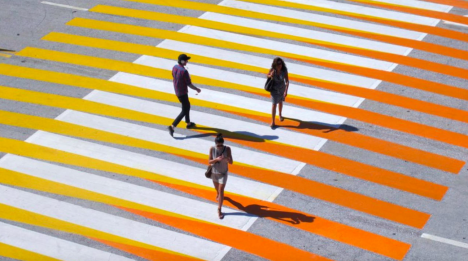
Venezuelan artist Carlos Cruz-Diez has been painting crosswalk interventions since the 1970s, creating potentially disorienting effects for the pedestrians who walk along them. Some of the street paintings seem to morph in color and shape, taking on movements of their own, as you cross. “The daily journey through urban spaces changes our personality and makes us into habitual beings who obey rules that nobody questions,” says Cruz-Diez. “The artist can create ephemeral expressions that, by generating completely new events, transform urban ‘linearity’ and at the same time inject an element of surprise into urban routine. These ephemeral works are a way of producing different readings of urban spaces and of deconsecrating the utilitarian objects of urban furniture.”
Faux Roadblocks Encourage Drivers to Stop
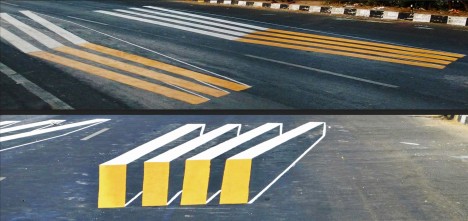
Drivers might actually slow down for pedestrians trying to cross the street if they think their car could get damaged by barreling forward – or at least, so hope two women in India who created this illusion. As you approach the intersection, it looks like there’s a roadblock, but it’s an anamorphic effect. As seen in the second photo, the technique has also been used in China.
Interactive Dancing Crosswalk Signal
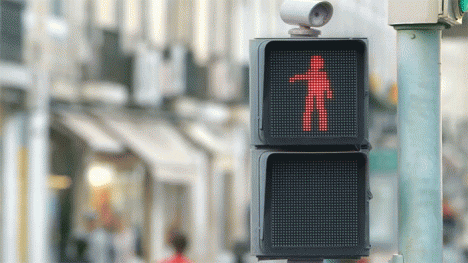
Tiny car manufacturer Smart hopes pedestrians will be so mesmerized by their animated dancing crosswalks signal, they’ll forget to jaywalk. A nearby dancing booth translates the dance moves of passersby into the ‘don’t walk’ silhouette, adding an element of interactivity and making the performance entirely unpredictable. Smart says 81% more people stopped at the light instead of walking out into the street while it was installed.
Virtual Speed Bumps
The idea with faux speed bumps like these is to catch drivers’ attention just briefly enough to get them to slow down, but not so much that they cause a traffic disruption. Philadelphia hoped to boost safety in the streets with these triangular 3D markings, which cost a fraction of real speed bumps and require very little maintenance.
Virtual Wall Crosswalk
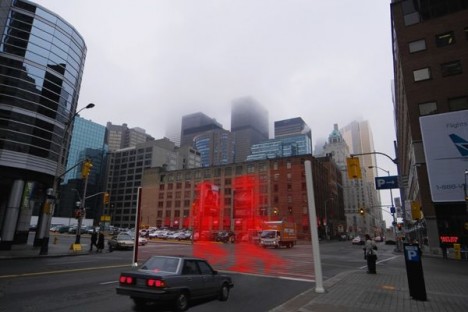
If the illusion of road bumps isn’t enough for you, maybe a virtual wall projected right in front of your car will get you to hit the brakes when approaching a pedestrian crossing. This concept by designer Hanyoung Lee uses plasma laser beams to project oversized pedestrians in front of vehicles, making it very clear that they need to wait a minute before continuing.
